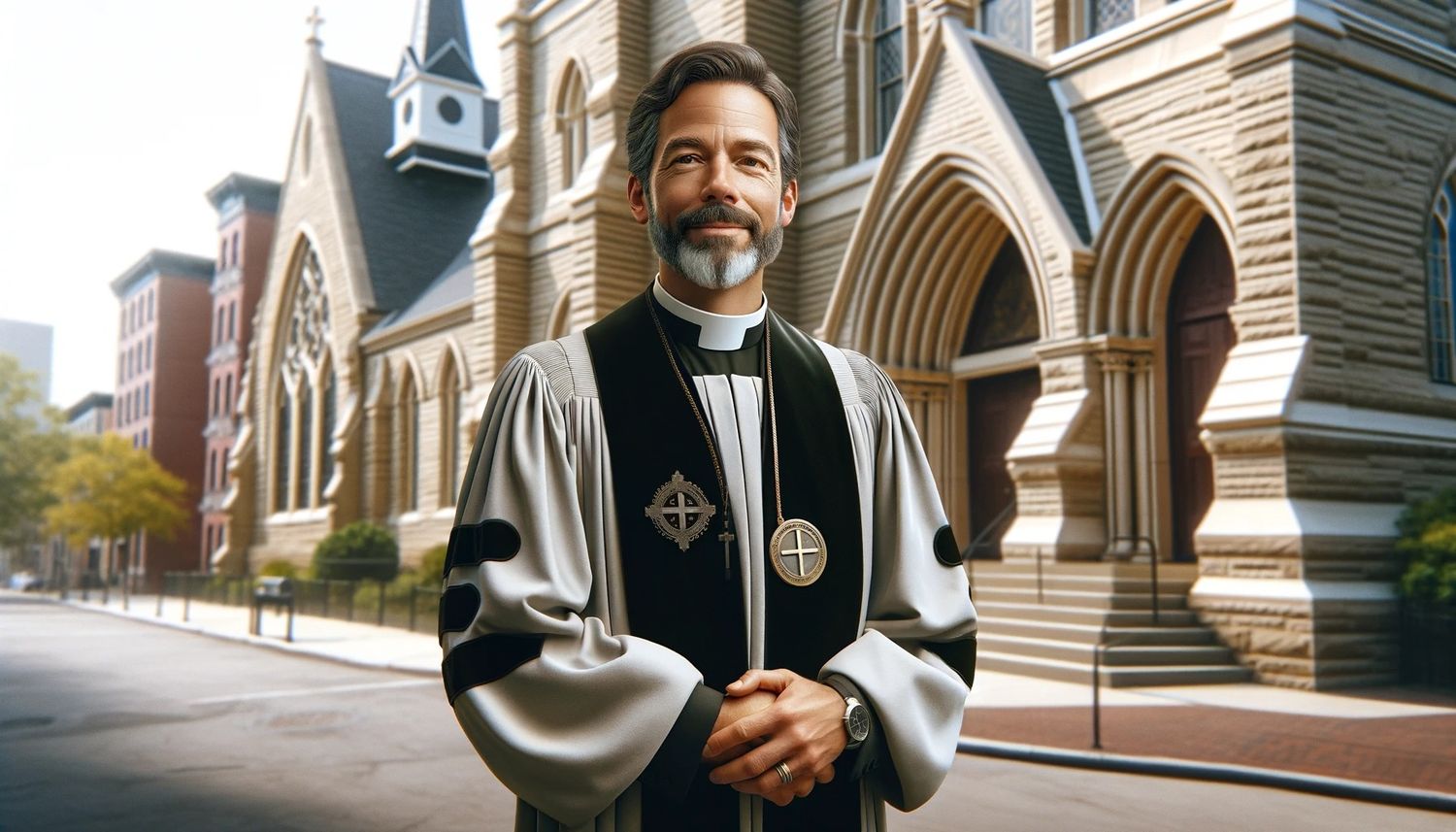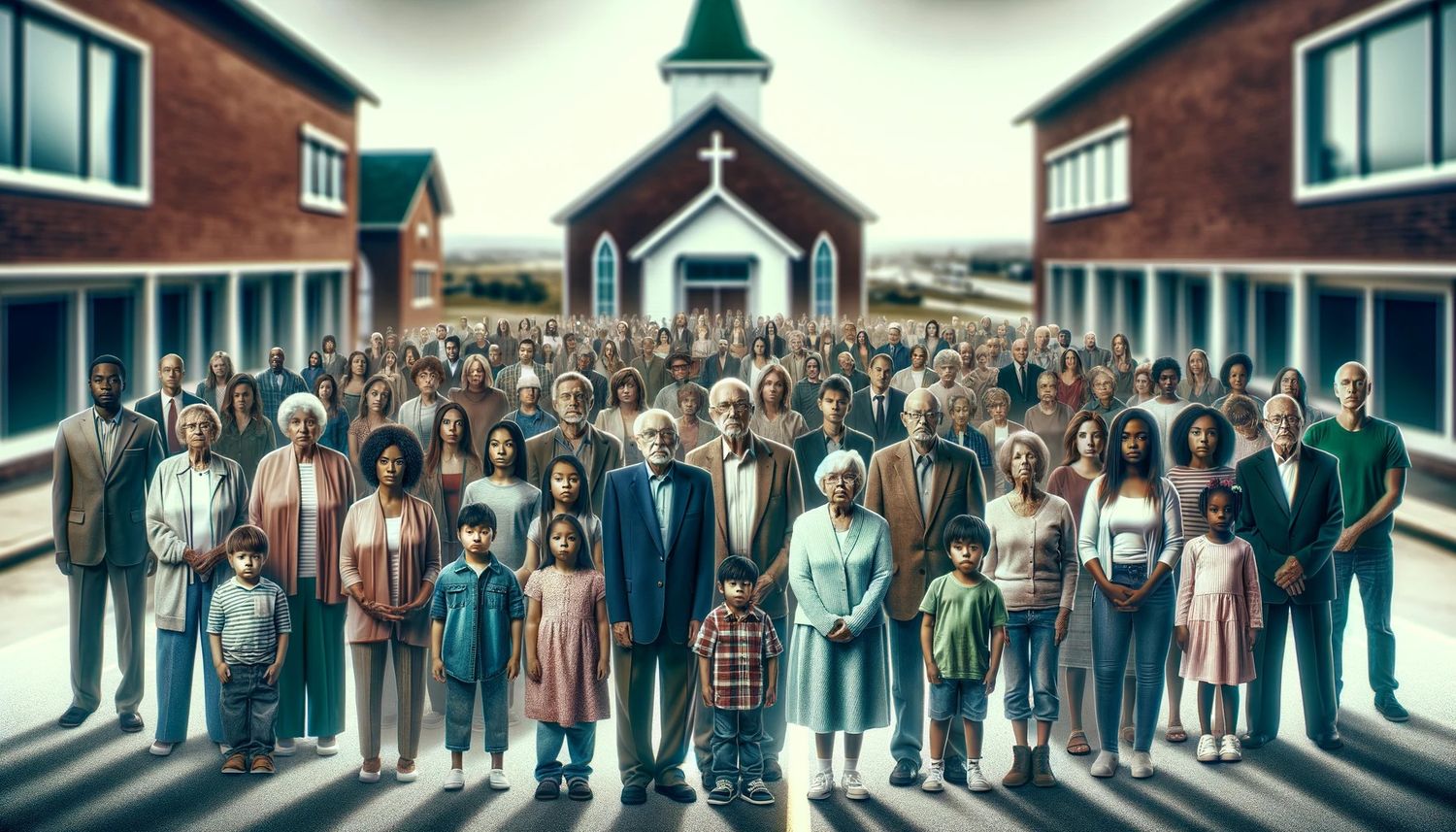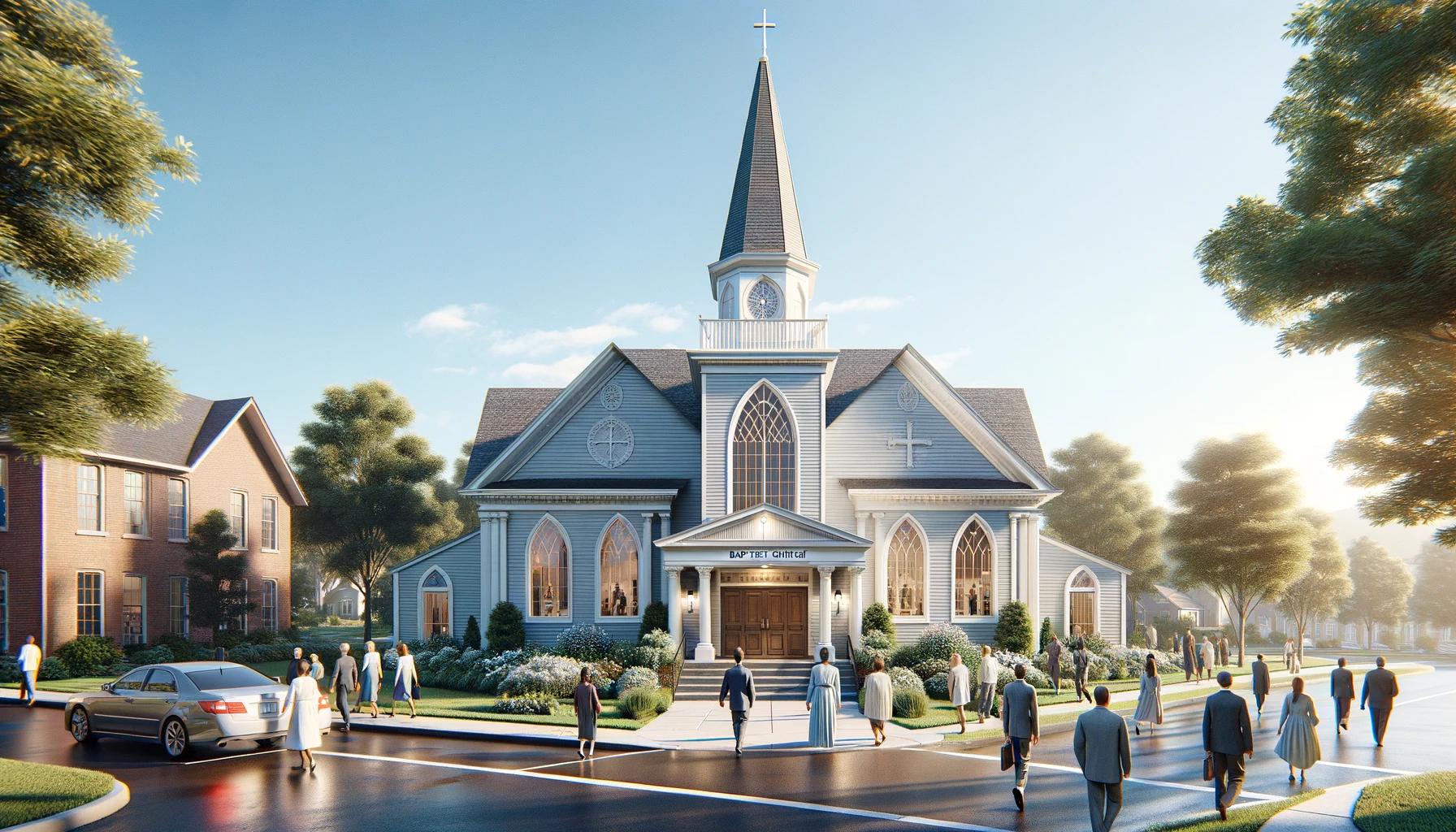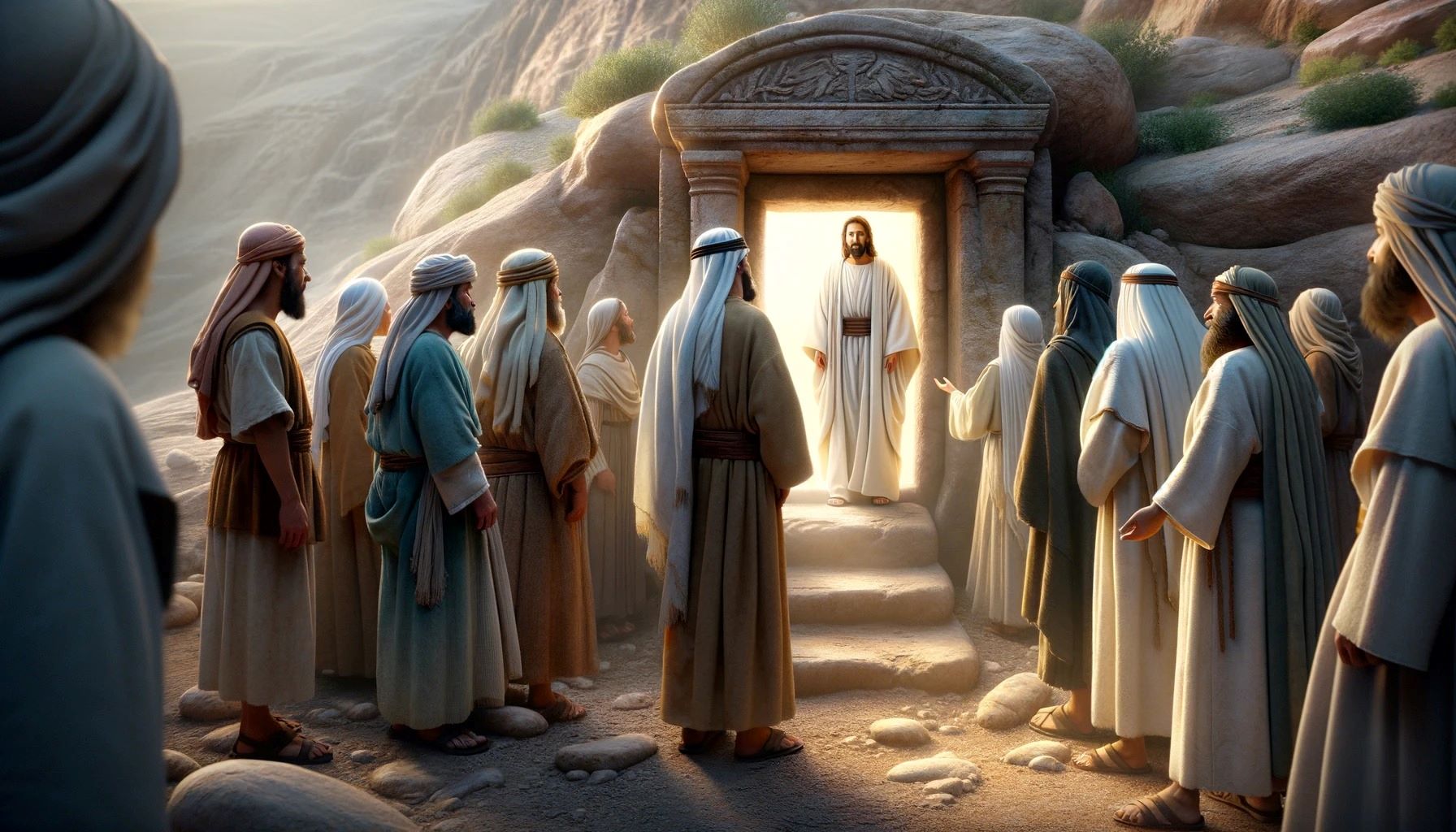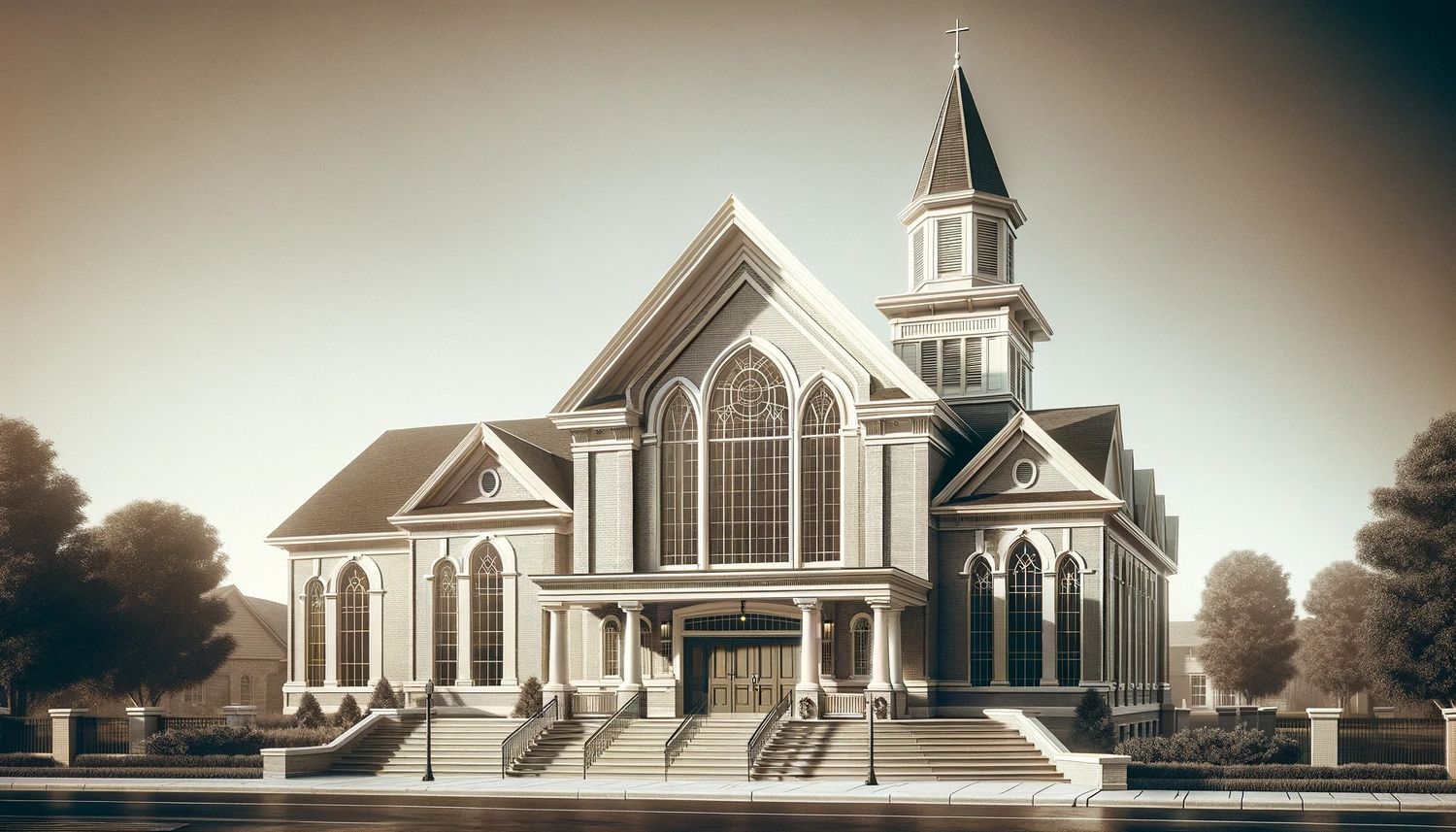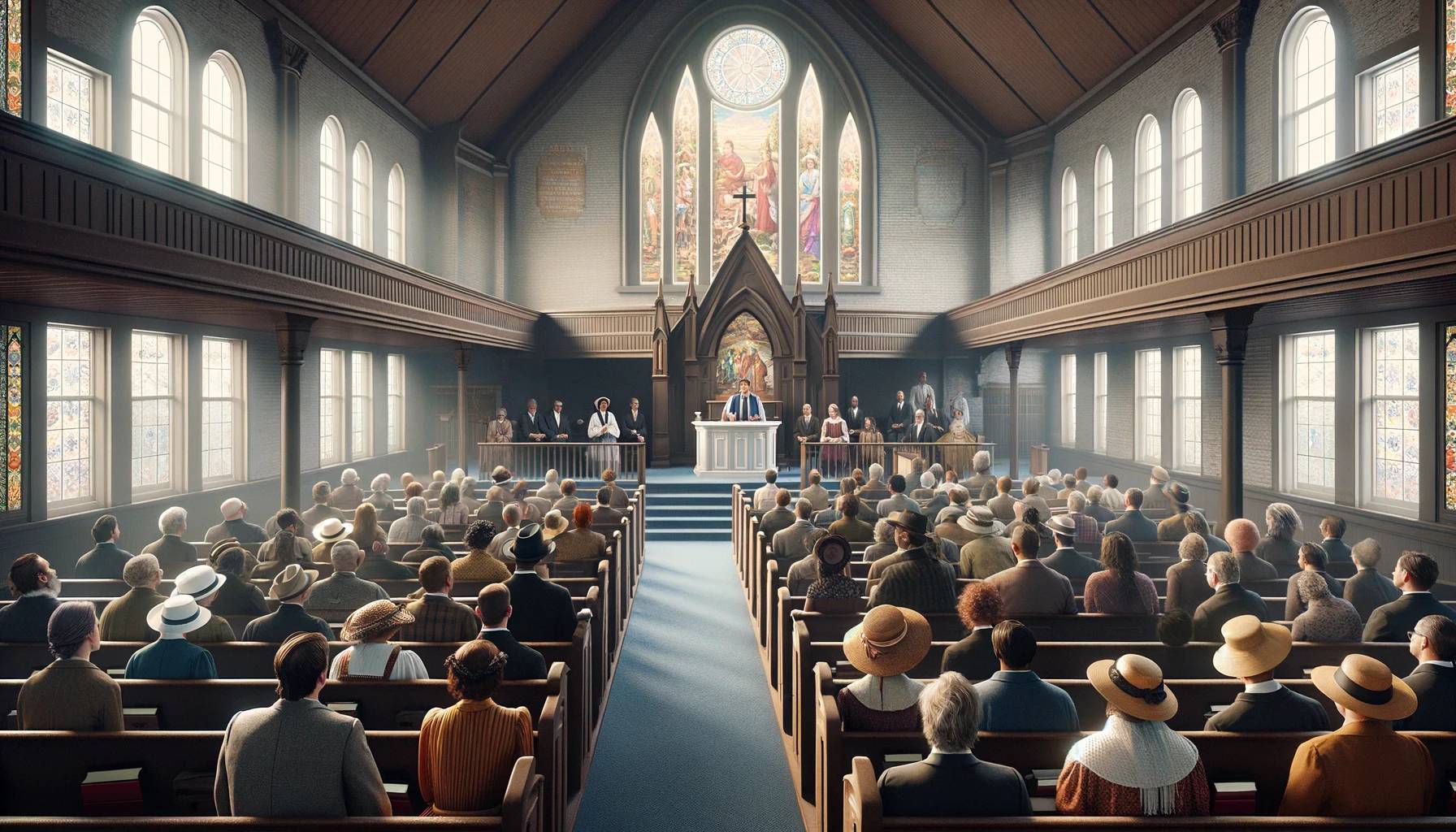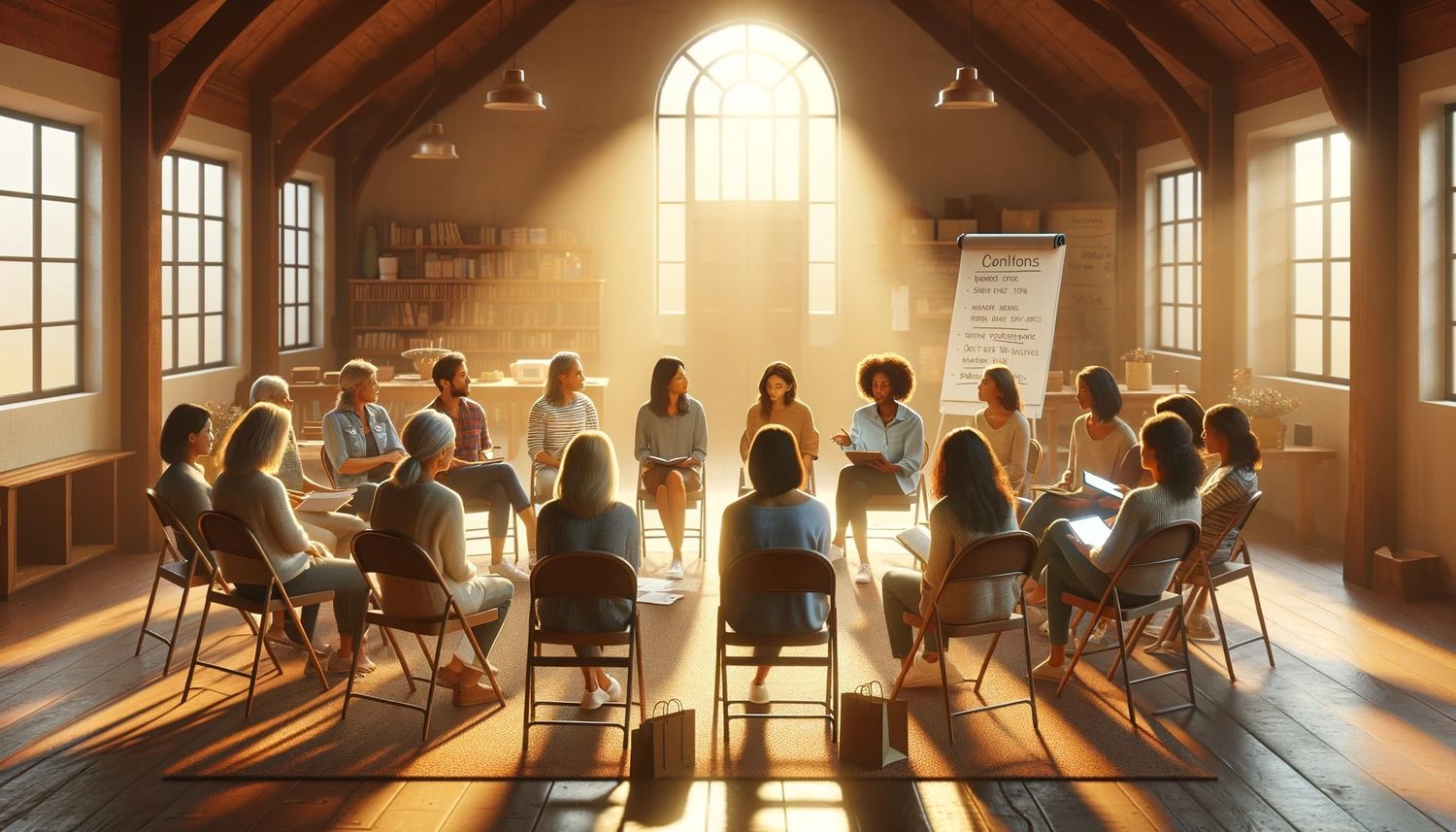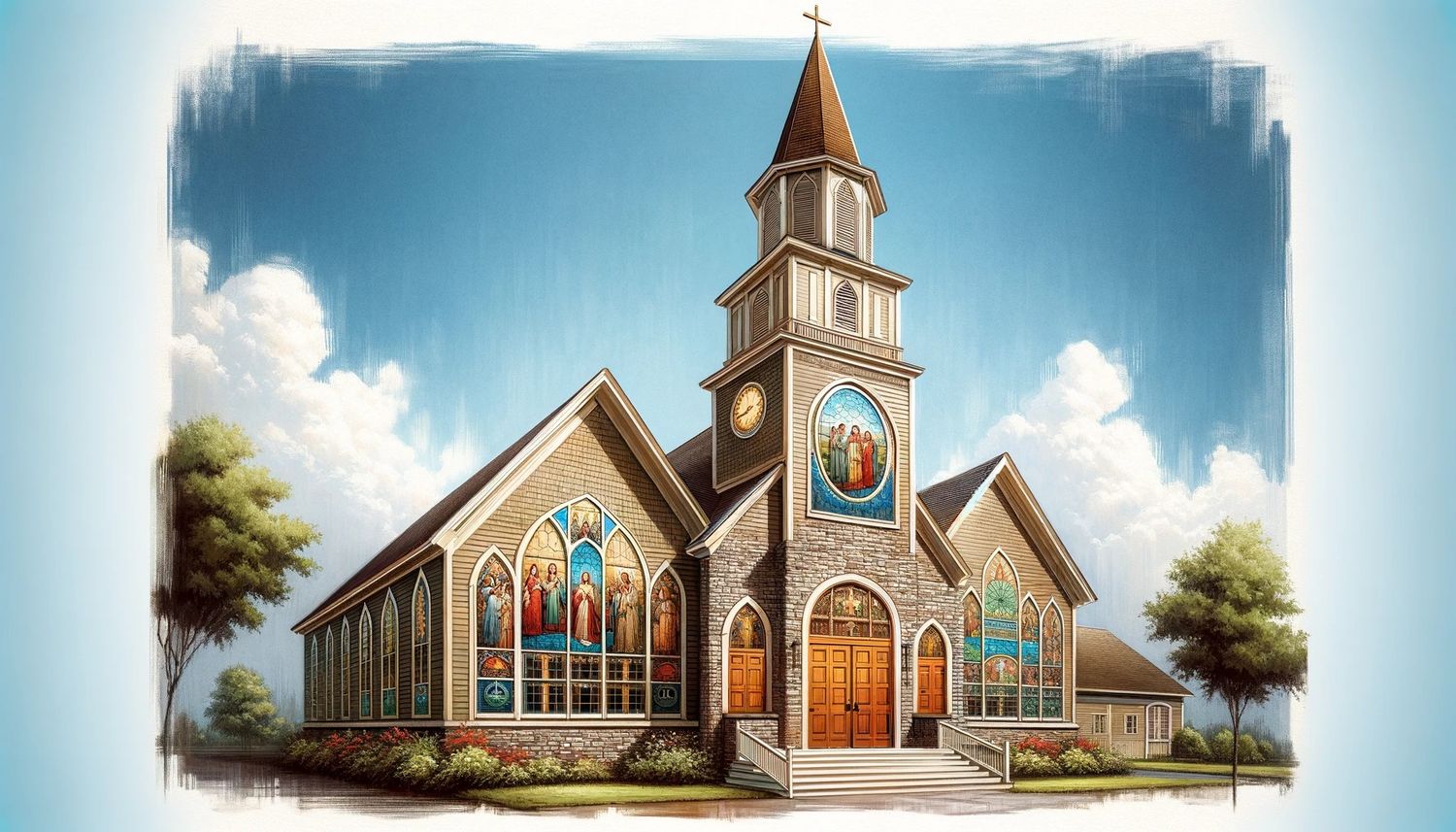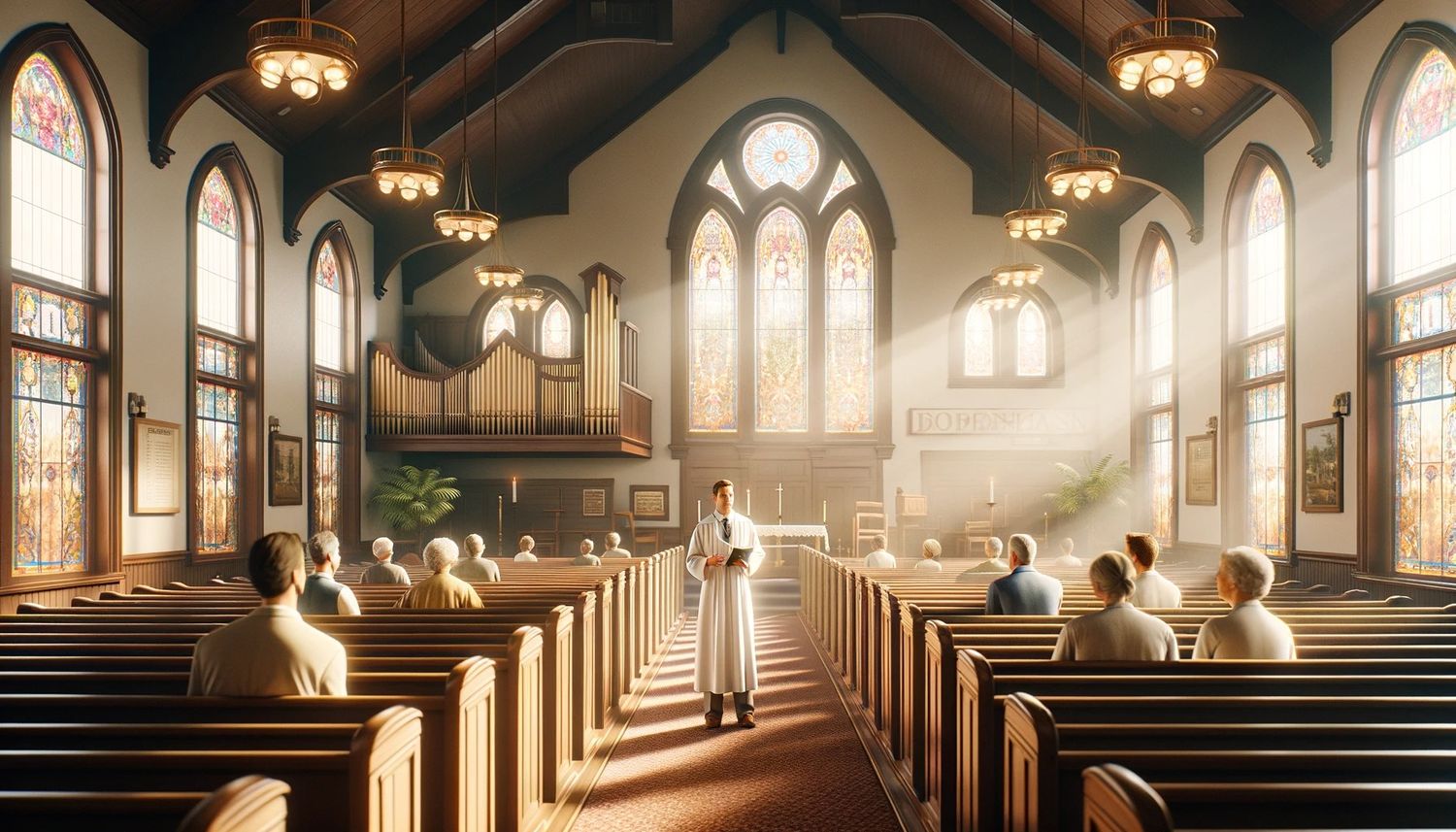Home>Theology and Spirituality>What Year Was The 16Th Street Baptist Church Bombing
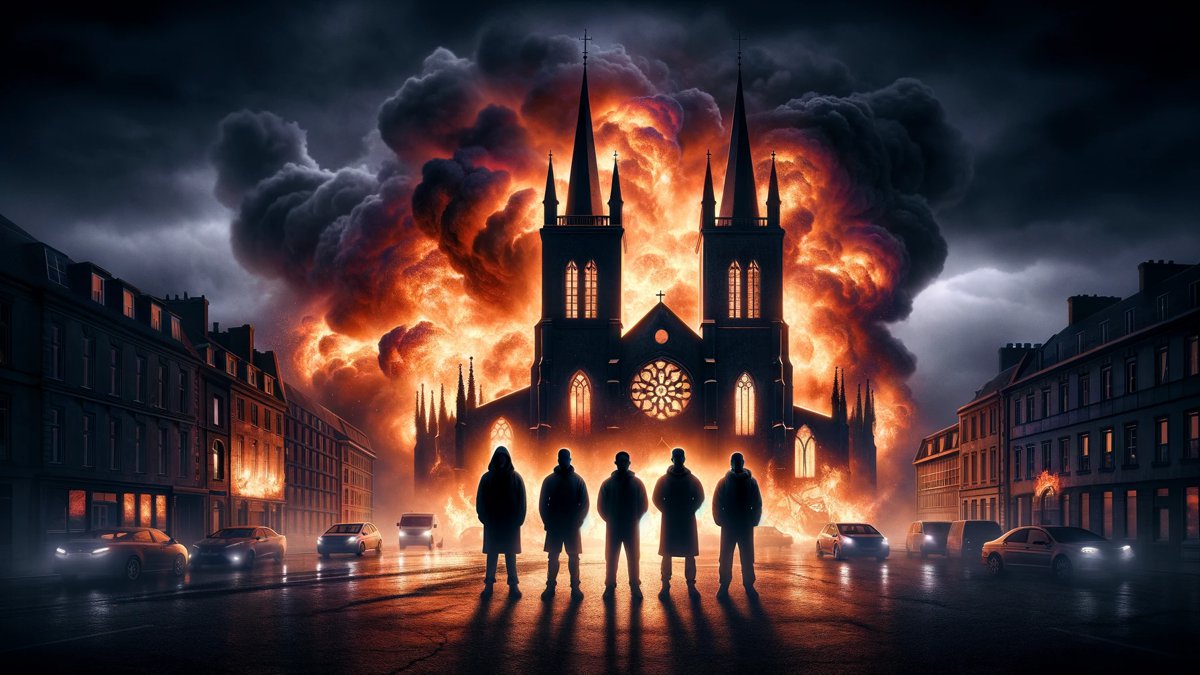

Theology and Spirituality
What Year Was The 16Th Street Baptist Church Bombing
Published: February 20, 2024
Peter Smith, Editorial Director at Christian.net, combines deep insights into faith, politics, and culture to lead content creation that resonates widely. Awarded for his contributions to religious discourse, he previously headed a major organization for religious communicators, enhancing dialogue on faith's societal impacts.
Discover the history and impact of the 16th Street Baptist Church bombing and its significance in theology and spirituality. Explore the events and aftermath of this tragic event.
(Many of the links in this article redirect to a specific reviewed product. Your purchase of these products through affiliate links helps to generate commission for Christian.net, at no extra cost. Learn more)
Table of Contents
Introduction
The 16th Street Baptist Church bombing stands as a haunting reminder of the deep-seated racial tensions that marred American history. This tragic event, which occurred in Birmingham, Alabama, holds a significant place in the civil rights movement and continues to evoke profound emotions and reflections on the enduring struggle for equality and justice.
The bombing, which took place on September 15, 1963, targeted the 16th Street Baptist Church, a revered institution within the African American community. The church had served as a central hub for civil rights activities, including meetings and rallies led by prominent figures such as Dr. Martin Luther King Jr. Its significance extended beyond its religious function, symbolizing hope, resilience, and the unwavering spirit of the African American population in the face of adversity.
The events surrounding the bombing unfolded during a tumultuous period in American history, characterized by widespread racial segregation and discrimination. Against this backdrop, the 16th Street Baptist Church stood as a beacon of hope, a place where the African American community could gather to seek solace, strength, and solidarity in their pursuit of equality and justice.
The bombing of the 16th Street Baptist Church sent shockwaves across the nation, galvanizing support for the civil rights movement and sparking outrage at the senseless act of violence perpetrated against innocent worshippers, including four young girls. The tragic loss of Addie Mae Collins, Cynthia Wesley, Carole Robertson, and Carol Denise McNair, innocent lives taken in a place of worship, shook the collective conscience of the American people and fueled a renewed determination to confront and dismantle the systemic racism that plagued the country.
The impact of the 16th Street Baptist Church bombing reverberated far beyond the borders of Birmingham, resonating with individuals and communities worldwide. It served as a catalyst for change, prompting a wave of activism and solidarity that would ultimately contribute to the advancement of civil rights legislation and the ongoing struggle for racial equality.
As we delve into the history and significance of the 16th Street Baptist Church bombing, it is essential to recognize the enduring legacy of this tragic event and its profound influence on the trajectory of the civil rights movement. By examining the context, the individuals involved, and the aftermath of the bombing, we gain a deeper understanding of the complexities and challenges inherent in the pursuit of justice and equality.
Read more: Who Made The 16th Chapel
The 16th Street Baptist Church
The 16th Street Baptist Church, located in Birmingham, Alabama, holds a pivotal place in the history of the civil rights movement. Founded in 1873, the church became a central gathering point for the African American community, providing not only a place of worship but also a sanctuary for organizing and advocating for civil rights. Its prominent role in the movement earned it the nickname "the meeting place" due to the numerous rallies, meetings, and assemblies held within its walls.
The church's significance extended beyond its religious functions, serving as a symbol of resilience and hope in the face of racial oppression. It stood as a testament to the unwavering spirit of the African American population, offering a space for solace, strength, and solidarity during a time of deep-seated segregation and discrimination.
Throughout the 1950s and 1960s, the 16th Street Baptist Church became a focal point for civil rights activities, hosting influential leaders such as Dr. Martin Luther King Jr. and serving as a launching pad for pivotal campaigns and demonstrations. The church's involvement in the movement made it a target for those who sought to suppress the progress of the African American community.
Despite facing intimidation and violence, the church remained steadfast in its commitment to advancing the cause of civil rights. Its congregation, comprised of individuals from all walks of life, stood united in their pursuit of equality and justice, embodying the resilience and determination that defined the civil rights era.
The 16th Street Baptist Church's enduring legacy as a symbol of hope and perseverance underscores its profound impact on the struggle for racial equality. Its role in providing a platform for activism and resistance against racial injustice solidifies its place in history as a beacon of strength and resilience in the face of adversity. The church's significance transcends its physical structure, embodying the spirit of a community that refused to be silenced in the fight for civil rights.
The 16th Street Baptist Church stands as a testament to the power of collective action and the resilience of those who dared to dream of a more just and equitable society. Its legacy continues to inspire and remind us of the enduring strength found in unity and the unwavering pursuit of justice for all.
The Bombing
On the morning of September 15, 1963, a heinous act of racial violence shook the foundations of the 16th Street Baptist Church in Birmingham, Alabama. At approximately 10:22 a.m., a powerful explosion ripped through the church, shattering its peaceful facade and claiming the lives of four innocent young girls: Addie Mae Collins, Cynthia Wesley, Carole Robertson, and Carol Denise McNair. The bombing, orchestrated by members of the Ku Klux Klan, targeted the African American congregation and sent shockwaves of grief and outrage across the nation.
The perpetrators, driven by virulent racism and a desire to instill fear within the African American community, planted a bomb beneath the steps of the church, intending to sow terror and division. The devastating impact of the explosion not only resulted in the tragic loss of young lives but also inflicted deep emotional wounds on the community and the broader civil rights movement.
The senseless act of violence at the 16th Street Baptist Church served as a stark reminder of the pervasive racial animosity that permeated American society during that era. It laid bare the stark reality of racial hatred and the lengths to which some individuals would go to suppress the advancement of civil rights and equality. The bombing was a deliberate assault on the sanctity of a place of worship, a violation of the fundamental right to gather and worship in peace, and a stark manifestation of the racial tensions that plagued the nation.
In the aftermath of the bombing, the nation recoiled in horror at the loss of innocent lives and the blatant disregard for human dignity. The tragedy galvanized widespread condemnation and prompted a groundswell of support for the civil rights movement. It served as a catalyst for renewed determination to confront and dismantle the systemic racism that had festered for far too long.
The bombing of the 16th Street Baptist Church stands as a dark chapter in American history, a poignant reminder of the profound human cost of racial hatred and bigotry. The innocent lives lost on that fateful day serve as enduring symbols of resilience and the ongoing struggle for justice and equality. The echoes of the bombing reverberate through time, compelling us to confront the enduring legacy of racial violence and to reaffirm our commitment to creating a society where all are valued and cherished without fear of discrimination or harm.
Aftermath and Impact
The aftermath of the 16th Street Baptist Church bombing reverberated far beyond the borders of Birmingham, sending shockwaves through the heart of the civil rights movement and leaving an indelible mark on the collective consciousness of the nation. In the immediate aftermath of the bombing, grief and outrage swept across the country as the senseless loss of innocent lives underscored the urgent need to confront the pervasive racial injustice that had plagued American society for generations.
The tragic events of September 15, 1963, served as a catalyst for a groundswell of activism and solidarity, galvanizing individuals and communities to stand in unwavering support of the civil rights movement. The devastating loss of Addie Mae Collins, Cynthia Wesley, Carole Robertson, and Carol Denise McNair, young lives taken in a place of worship, ignited a renewed determination to confront the systemic racism that had perpetuated inequality and division.
The bombing of the 16th Street Baptist Church laid bare the stark reality of racial hatred and the urgent need for meaningful change. It prompted a wave of public outcry and condemnation, compelling individuals from all walks of life to confront the deep-seated prejudices that had long festered within the fabric of American society. The tragedy served as a poignant reminder of the human cost of racial violence and discrimination, prompting a collective reckoning with the need to dismantle the barriers that had long hindered the pursuit of justice and equality.
In the wake of the bombing, the civil rights movement experienced a surge of momentum, with individuals and organizations mobilizing to demand legislative action and societal change. The tragedy of the 16th Street Baptist Church bombing became a rallying cry for justice, inspiring a new wave of activism and advocacy aimed at eradicating racial injustice and upholding the inherent dignity and rights of all individuals.
The impact of the bombing extended beyond the confines of the civil rights movement, permeating the fabric of American society and prompting a broader dialogue on the urgent need for social and political transformation. The tragedy served as a catalyst for change, propelling the nation toward a more profound understanding of the systemic inequalities that had long marginalized communities of color.
The enduring legacy of the 16th Street Baptist Church bombing underscores its profound impact on the trajectory of the civil rights movement and its role in shaping the collective conscience of the nation. The tragedy stands as a testament to the resilience and determination of those who refused to be silenced in the pursuit of justice and equality, inspiring a legacy of activism and solidarity that continues to resonate with individuals and communities dedicated to creating a more just and equitable society.
Conclusion
The 16th Street Baptist Church bombing stands as a tragic yet pivotal moment in the history of the civil rights movement, serving as a stark reminder of the enduring struggle for justice and equality. The events of September 15, 1963, reverberate through time, compelling us to confront the profound human cost of racial violence and discrimination. The innocent lives lost on that fateful day, and the enduring legacy of the bombing, underscore the urgent need to address the systemic inequalities that have long marginalized communities of color.
The bombing of the 16th Street Baptist Church galvanized a wave of activism and solidarity, igniting a renewed determination to confront the pervasive racial injustice that had plagued American society. The tragic loss of Addie Mae Collins, Cynthia Wesley, Carole Robertson, and Carol Denise McNair, innocent lives taken in a place of worship, prompted a collective reckoning with the urgent need for meaningful change. Their memory serves as a poignant reminder of the resilience and determination of those who refused to be silenced in the pursuit of justice and equality.
The aftermath of the bombing propelled the civil rights movement forward, inspiring a new wave of advocacy and activism aimed at eradicating racial injustice and upholding the inherent dignity and rights of all individuals. The tragedy became a rallying cry for justice, prompting individuals and communities to demand legislative action and societal transformation. The enduring legacy of the 16th Street Baptist Church bombing underscores its profound impact on the trajectory of the civil rights movement and its role in shaping the collective conscience of the nation.
As we reflect on the history and significance of the 16th Street Baptist Church bombing, we are reminded of the enduring strength found in unity and the unwavering pursuit of justice for all. The tragedy serves as a testament to the resilience of those who dared to dream of a more just and equitable society, inspiring a legacy of activism and solidarity that continues to resonate with individuals and communities dedicated to creating a more inclusive and compassionate world.
The 16th Street Baptist Church bombing stands as a solemn reminder of the work that remains to be done in the ongoing pursuit of justice and equality. It calls upon us to honor the memory of those who lost their lives by continuing to advocate for a society where all are valued and cherished without fear of discrimination or harm. The legacy of the 16th Street Baptist Church bombing lives on as a testament to the enduring spirit of those who have dedicated themselves to the noble pursuit of a more just and equitable world.
